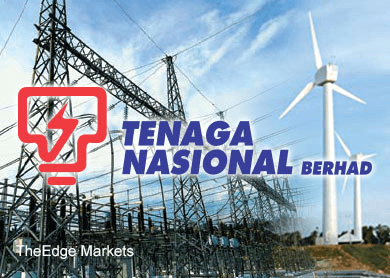
KUALA LUMPUR: Unplanned outages at three power plants triggered Tenaga Nasional Bhd’s (TNB) issuance of an “orange warning” — an emergency call for all electricity generators to be on full alert — earlier this month.
In addition, it is understood that three other power plants suffered forced outages after the orange warning, which exacerbated the situation.
At the peak of the incident, the national utility drew some 300mw of electricity from the Electricity Generating Authority of Thailand for about three hours to fill the supply gap.
While TNB denied that the outages resulted in load-shedding, the incident tested the grid’s reserve margin and its ability to cope with such emergencies.
“Due to the sudden additional shortfall of 2,060mw of generating plants caused by the forced outages at Janamanjung U4 (1,010mw), Jimah Unit 1 (700mw) and Tuanku Jaafar Power Station GT 2A (350mw), there is a possibility of insufficient generation to meet electricity demand during this period,” wrote TNB’s Grid System Operator in the orange warning letter to all generators on June 3.
“Should this happen, a possible control action is to shed demand to ensure [that the] integrity of the grid is maintained,” the letter said.
Load-shedding is a controlled cut of electricity to certain portions of the grid, typically rural and low-priority areas, to reduce demand. In turn, this protects the grid as a whole from a blackout.
“This is the contingency protocol that is in place for such an incident to prevent any loss of load. This event shows that the national grid is robust enough to cope with a huge and sudden loss of load without [causing] major incidents,” a TNB spokesman explained.
“TNB has never violated the loss of load expectation threshold for one day, of which the grid was planned and designed for. We still have a reserve margin of 29%.”
Furthermore, the spokesman pointed out that drawing power from Thailand is part of a mutual agreement between the two countries to support each other in the event of a shortfall.
Generally, it appears that almost every generator in the country played a role in the orange warning incident.
Janamanjung 4 is a relatively new plant owned by TNB, and arguably still undergoing teething issues. The Jimah Power Station is controlled by Edra Global Energy Bhd, while the Tuanku Jaafar Power Station in Port Dickson is controlled by TNB.
The other three plants that suffered forced outages included a 450mw block of Segari Energy Ventures, controlled by Malakoff Corp Bhd, which failed on June 4.
TNB and Malakoff’s 60:40-controlled Kapar Energy Ventures saw a forced shutdown of 560mw on June 5. TNB’s 100mw hydroelectric power plant — Sultan Yussuf Power Station (Jor) — also suffered a forced outage during this period.
Furthermore, one 700mw unit of Malakoff’s coal-fired Tanjung Bin Power Plant was also shut down for planned maintenance at the time.
It is understood that Janamanjung 4, Jimah Unit 1 and the Tuanku Jaafar Power Station tripped around the same time — during peak demand in the middle of the day — causing the orange alert to be issued.
It is extremely rare for so many plants to “trip” at once. Call it Murphy’s Law, perhaps, but it has already happened twice since May last year.
Unplanned outages at several large power plants forced TNB to load-shed, resulting in small, localised blackouts in five different states in May last year. This raises the question whether the country’s power supply would slip into a vulnerable situation if electricity demand continues to grow?
As a stopgap measure, the Energy Commission is in the midst of extending several power purchase agreements to ensure that the country has enough power, after several power plant projects were delayed.
One of the delayed projects is the 2,000mw coal-fired power plant project known as Project 3B, which 1Malaysia Development Bhd has won, due to financing issues. The Cabinet last week approved the takeover of the project by TNB.
Another project expected to be delayed is Project 4A — a 1,100mw to 1,400mw combined cycle gas turbine plant — which is being undertaken by SIPP Energy Sdn Bhd.
This article first appeared in The Edge Financial Daily, on June 22, 2015.